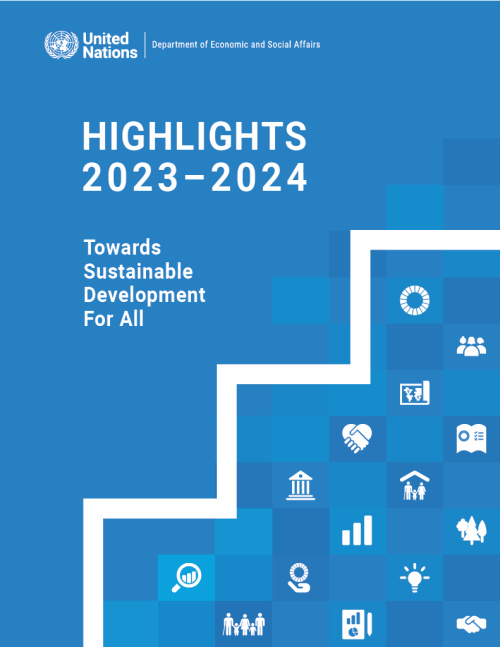
The UN DESA Annual Highlights report is a tool to communicate the contributions of the Department to the realization of internationally agreed development goals and shared social, economic, and environmental aspirations. It showcases the Department’s role in gauging trends, building capacities, and shaping solutions. UN DESA Highlights 2023–2024 covers activities over the period of the 78th Session of the General Assembly (September 2023 – August 2024) and reflects the Department’s response to the set priorities and expressed needs of Member States. Seven (7) thematic chapters showcase how UN DESA put its expertise to the task of supporting Member State efforts to implement the 2030…
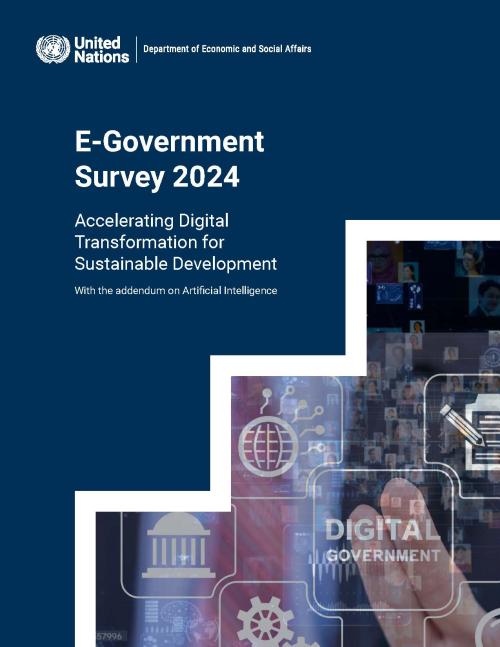
This thirteenth edition of the United Nations E-Government Survey, released in 2024, provides a comprehensive assessment of the digital government landscape across all 193 Member States. The 2024 Survey highlights a significant upward trend in the development of digital government worldwide, with increased investment in resilient infrastructure and cutting-edge technologies. The global average value of the E-Government Development Index (EGDI) shows substantial improvement, with the proportion of the population lagging in digital government development decreasing from 45.0 per cent in 2022 to 22.4 per cent in 2024.
Despite significant progress in digital government…
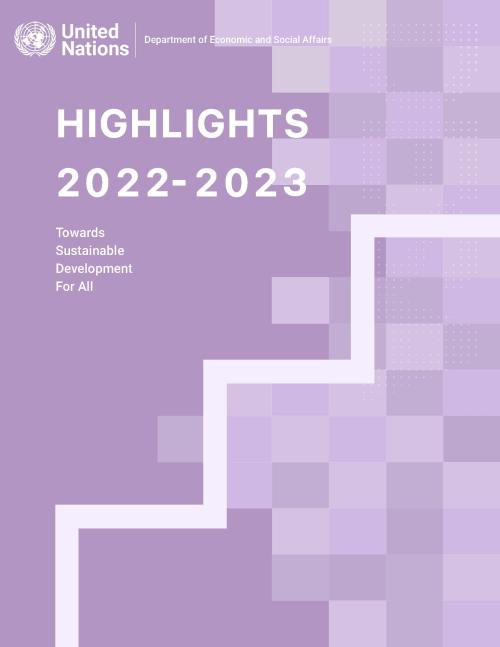
The UN DESA Annual Highlights report is a tool to communicate the contributions of the Department to the realization of internationally agreed development goals and shared social, economic, and environmental aspirations. It showcases the Department’s role in gauging trends, building capacities, and shaping solutions. UN DESA Highlights 2022-2023 covers activities over the period of the 77th Session of the General Assembly (September 2022 – August 2023) and reflects the Department’s response to the set priorities and expressed needs of Member States. Seven (7) thematic chapters showcase how UN DESA put its expertise to the task of supporting Member State efforts to implement the 2030…
The United Nations E-Government Survey 2022 is the 12th edition of the United Nations’ assessment of the digital government landscape across all 193 Member States. The E-Government Survey is informed by over two decades of longitudinal research, with a ranking of countries based on the United Nations E-Government Development Index (EGDI), a combination of primary data (collected and owned by the United Nations Department of Economic and Social Affairs) and secondary data from other UN agencies.
This edition of the Survey includes data analysis in global and regional contexts, a study of local e-government development based on the United Nations Local Online Service Index (LOSI),…
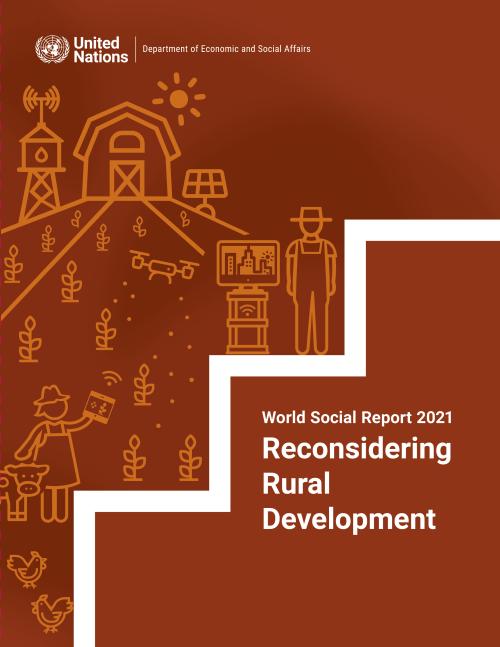
New approaches made possible through improved access and Internet connectivity can raise the standard of living for approximately 3.4 billion people living in rural areas, without them having to migrate to cities, according to the newly released 2021 World Social Report “Reconsidering Rural Development.”
The COVID-19 pandemic, together with already persistent high levels of poverty and inequalities, are threatening to stall progress for the world’s rural populations. But the pandemic has also proven that new technologies can enable rural populations to flourish, ending the rural-urban divide.
UN Secretary-General António Guterres said the new technologies opened up new…
The new report examines five megatrends: climate change; demographic shifts, particularly population ageing; urbanization; the emergence of digital technologies; and inequalities –that are affecting economic, social and environmental outcomes. Efforts to reverse or redirect these trends must be reinforced to ensure that we achieve the full measure of the 2030 Agenda, and set the stage for an inclusive, sustainable and equitable future during the next 75 years.
All trends are the result of human activity, and as such, they can be shaped by human decisions and policy choices. By making the right choices today, without further delay, it is not too late to shape the major trends of…
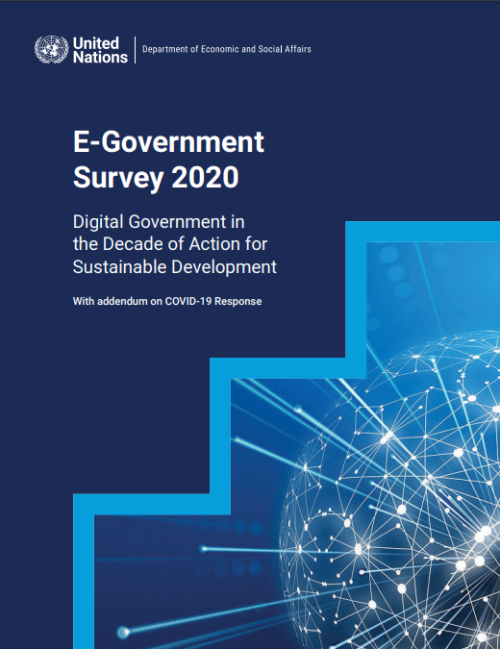
The year 2020 witnessed a transformational change in global development as the United Nations Secretary-General António Guterres called on Member States and other stakeholders to “kickstart a decade of delivery and action for people and planet”, given the short time left to achieve the 2030 Agenda for Sustainable Development. By surveying and studying broad patterns of digital government around the world, the United Nations E-Government Survey assesses the digital government development of the 193 United Nations Member States in identifying their strengths, challenges and opportunities, as well as informing policies and strategies. The Survey supports countries’ efforts to provide…
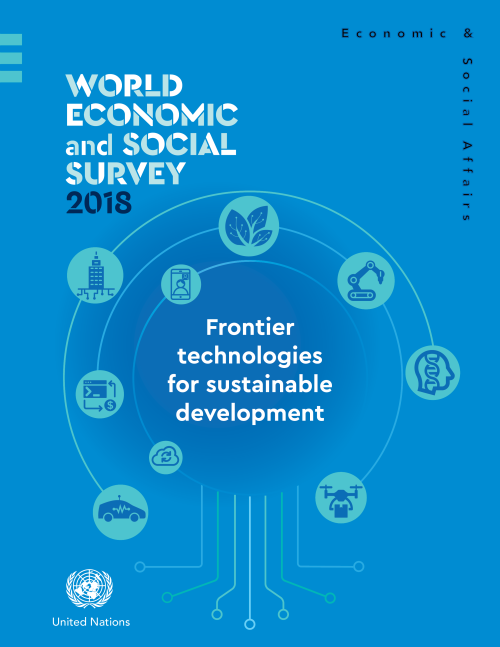
New frontier technologies — everything from renewable energy technologies to biodegradable plastics, artificial intelligence and electric vehicles — hold immense potential to improve people’s lives and significantly accelerate efforts to achieve the Sustainable Development Goals and address climate change. But without appropriate policies, they can also drive greater inequality and increase social dislocations.
The World Economic and Social Survey 2018 produced by UN DESA found that renewable energy technologies and efficient energy storage systems are already enhancing environmental sustainability, allowing countries to “leapfrog” over existing technological solutions. New…
Countries in all regions of the world are continuing to make strides in their efforts to improve e-government and to provide public services online according to a new report launched by the United Nations Department of Economic and Social Affairs today.
In a 2018 ranking of countries on e-government development, Denmark, Australia, and Republic of Korea came out on top of a group of 40 countries, scoring very high on an index (the E-Government Development Index—EGDI), which measures countries’ use of information and communications technologies to deliver public services. The Index captures the scope and quality of online services, status of telecommunication infrastructure and…
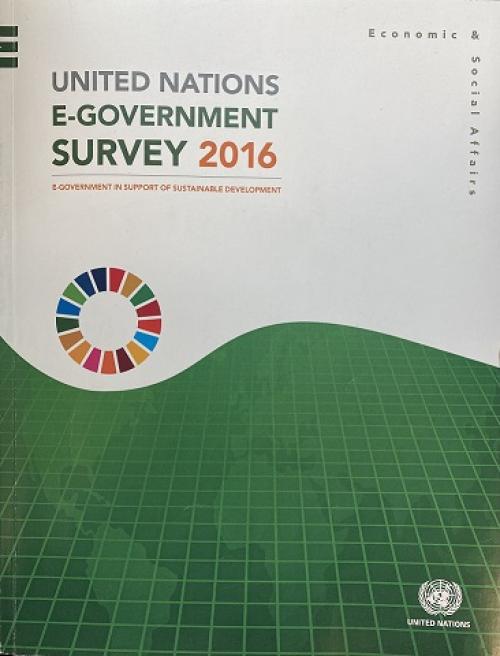
The United Kingdom, followed by Australia and the Republic of Korea, lead the world in providing government services and information through the Internet, e-government, according to a new survey released today by the United Nations showing the progress of nations in promoting e-government.
The 2016 UN E-Government Survey provides new evidence that e-government has the potential to help support the implementation of the 2030 Agenda and its 17 sustainable development goals (SDGs).
The Survey found that United Kingdom has pursued continued development on e-government innovation, and its Government Digital Service has been replicated by other countries around the…
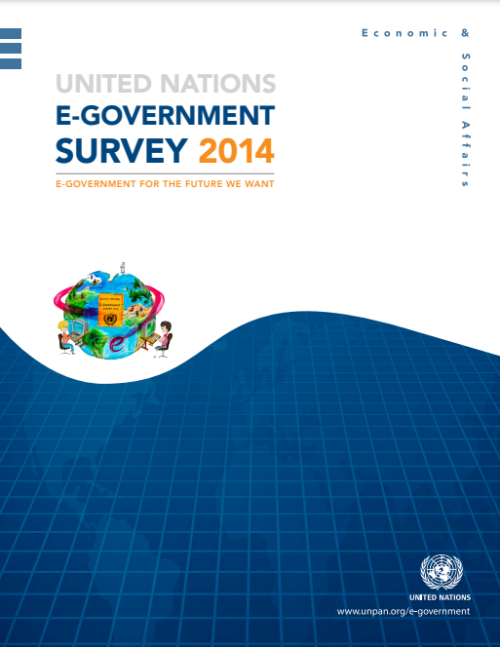
E-government—digital interactions between governments and people—varies greatly among and within regions, but most countries are making progress on providing greater access, according to the 2014 UN E-Government Survey launched today. The findings show that the Republic of Korea tops the global e-government ranking, and that Europe remains first among regions.
The report also shows that many countries are expanding electronic participation, utilizing more mobile and social media tools, expanding usage and making more government data available online. However, challenges remain, such as lack of resources, digital inequalities and a lack of leadership for e-government.
“E-…
The experience from the Millennium Development Goals has shown that well-defined, objectively measurable indicators can help to maintain focus on internationally agreed development goals and targets, while keeping the world informed of achievements, problem areas and emerging issues.
Looking ahead to the post-2015 development agenda, it will be important to develop a robust monitoring system that draws on traditional data collection methods and innovations in statistics and data collection to develop a monitoring framework that can measure progress on the various thematic areas.
While it is still too early to define a set of indicators and targets for the development…
 Welcome to the United Nations
Welcome to the United Nations